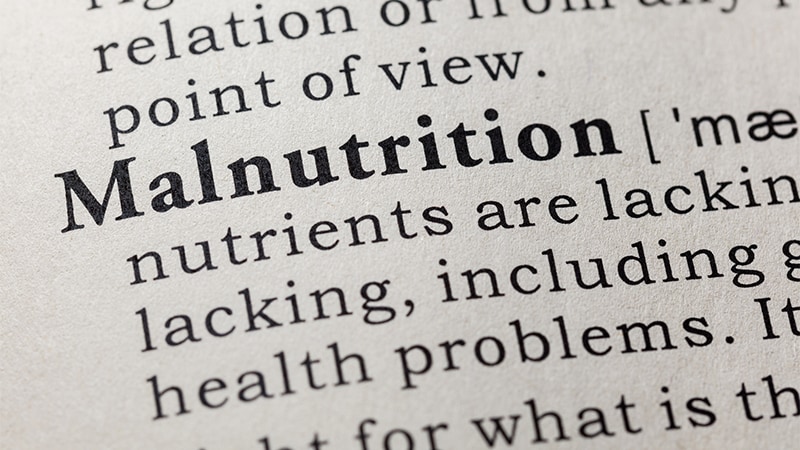
Researchers published the study covered in this summary on medRxiv.org as a preprint that has not yet been peer reviewed.
Key Takeaways
-
Adults whose rehabilitation weight gain as children following an episode of severe malnutrition exceeded certain thresholds had a significantly increased risk for elevated body mass index (BMI) and adiposity, especially abdominal adiposity, independent of their admission weight and adult height.
-
Three different measures of in-hospital rehabilitation weight gain were associated with at least one measure of adult adiposity, but post-hospitalization weight gain did not show similar associations.
-
The results showed an inverse association between post-hospitalization weight gain and the ratio of android/gynoid fat, an important predictor of metabolic and cardiovascular disease risk.
-
Faster weight gain during and after hospital admission for severe malnutrition was associated with greater lean mass, which is typically associated with a reduced risk of incident noncommunicable diseases.
-
Neither rehabilitation weight gain nor post-hospitalization weight gain was associated with adult blood pressure or with blood levels of glucose, insulin, or lipids.
Why This Matters
-
Greater adult BMI is an independent risk factor for cardiovascular disease.
-
Abdominal or android fat is an important predictor of metabolic and cardiovascular risk.
-
The association between post-malnutrition weight gain in childhood and adult android fat in young, normal-weight survivors of severe malnutrition could result in an increased future risk of noncommunicable disease.
-
The findings highlight the importance of assessing the existing guidelines on weight-gain targets during malnutrition treatment in childhood as well as underscore the need for further examination, in a prospective, interventional trial of the optimal amount of weight gain in children who have experienced severe malnutrition.
Study Design
-
The researchers studied 273 adult survivors of an episode of severe malnutrition and hospitalization as children who had complete records for all relevant data points.
-
Participants had undergone treatment as children for severe malnutrition during 1963-1993 at the Tropical Metabolism Research Unit of the University Hospital of the West Indies. They also underwent assessment as adults during 2008-2012.
Key Results
-
The mean age of study participants at the time of their index hospitalization for malnutrition was nearly 12 months. Follow-up as adults occurred at an average age of about 28 years old, and average body mass index (BMI) of the adults was 23.6 kg/m2.
-
Weight gain during the first year after hospitalization was inversely associated with the android/gynoid fat ratio.
-
The investigators used three measures of weight gain during malnutrition hospitalization: daily change in weight-for-age z-score, change in weight per kg at hospitalization, and change in weight. All three measures were significantly linked with the subsequent risk for having noncommunicable diseases in regression models that adjusted for age, sex, and weight-for-age z-score at time of minimum weight.
-
Measures of adiposity, such as BMI, waist circumference, fat mass, and android fat mass, appeared similar across the first four quintiles of weight gain, but people in the fifth (highest) quintile showed greater adiposity. Each 1-unit increase in weight gain did not appear to increase the risk for noncommunicable disease in the same way. The results showed a threshold effect of weight gain during acute hospitalization on adult adiposity, suggesting that weight gain at or above 13 g/kg/day, or a total of 81 g/day, or a weight-for-age z-score above 0.09/day could result in a substantially greater risk for adult adiposity
-
Although faster weight gain was associated with higher adult BMI, only 11% of the study cohort exceeded the common threshold for obesity with a BMI greater than 30 kg/m2.
Limitations
-
Many post-hospitalization factors during childhood, including diet at home and intercurrent illnesses, could have affected the observed associations.
-
The researchers did not consider data on adult dietary intake, physical activity, and comorbid conditions, all possible confounders.
-
The study focused entirely on people with Afro-Caribbean ancestry, and hence, the findings may not fully apply to people from other ethnic groups or in different geographical settings where different environmental and dietary conditions exist.
Disclosures
-
The study received no commercial funding.
-
None of the authors had disclosures.
This is a summary of a preprint research study, “Faster post-malnutrition weight gain during childhood is associated with risk of non-communicable disease in adult survivors of severe malnutrition,” written by a group of international collaborators led by researchers at the Caribbean Institute for Health Research of the University of the West Indies in Kingston, Jamaica on medRxiv provided to you by Medscape. This study has not yet been peer reviewed. The full text of the study can be found on medRxiv.org.
Source: Read Full Article